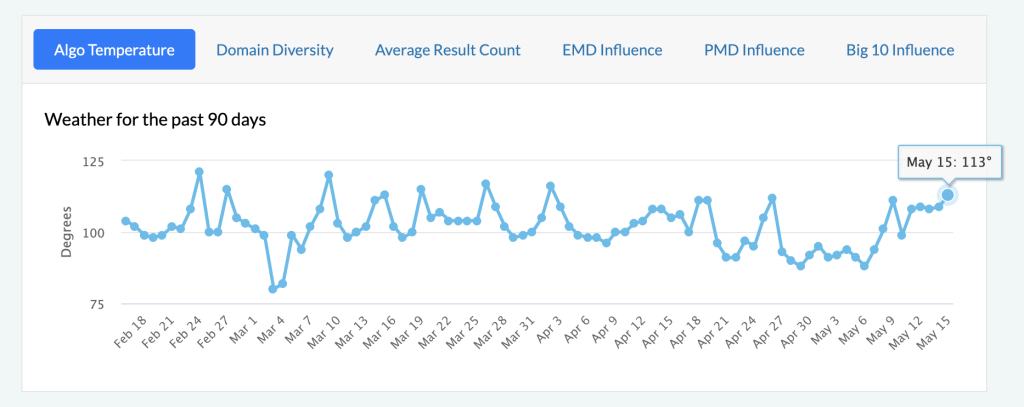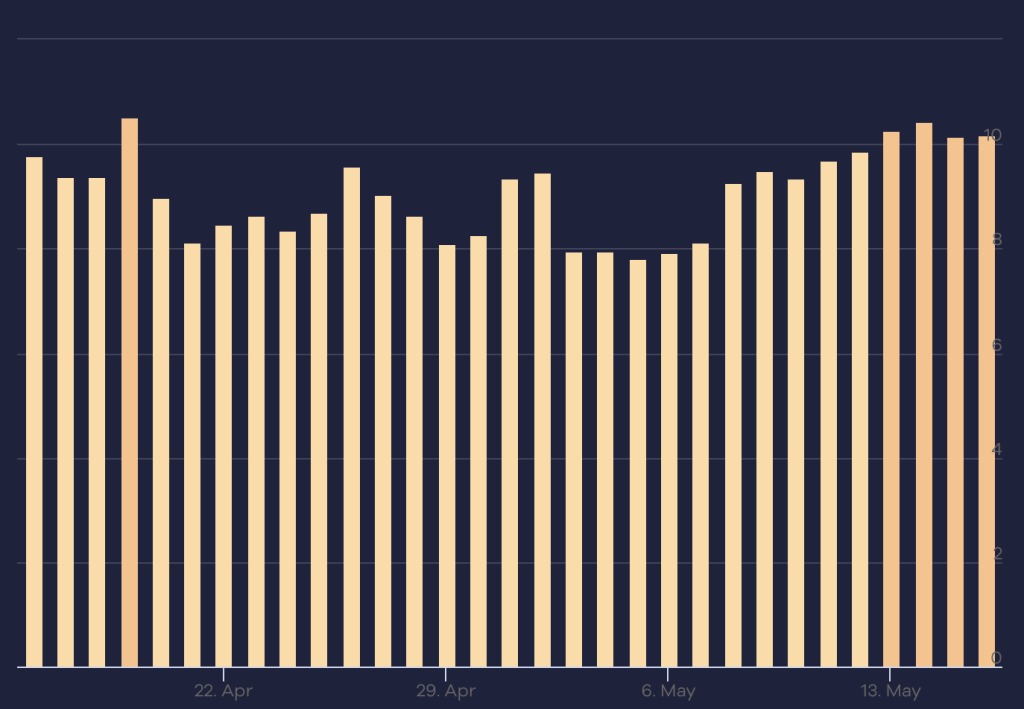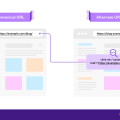You’ve been keeping an eye on the ever-shifting terrain of Google Search rankings, and the latest update won’t disappoint. Since early May, those in the SEO community have been buzzing about unusually heated volatility in rankings, with fluctuations continuing unabated through May 16th. Speculation is rife, but it seems long-running ranking data refreshes and potential unconfirmed changes to Google’s algorithm might be driving the turbulence. It’s a tense waiting game as traffic swings wildly, leaving site owners scrambling to adapt. Whether it’s impacting your traffic positively or negatively, these shifts are proving to be as unpredictable as they are relentless. Have you noticed your website traffic doing a rollercoaster act lately? If you have, you’re not alone! There’s been a ton of chatter in the SEO community about the recent volatility in Google search rankings, which has continued to surprise many through May 16th. Let’s dive into what’s been going on and how it might impact you.
Overview of the Recent Google Search Ranking Volatility
The recent Google search ranking volatility has many in the SEO community scratching their heads. Although ranking fluctuations are not new, the ongoing intensity and duration of these changes have been quite exceptional. It all started on May 3rd and ramped up significantly on May 9th. Despite what you might expect, things haven’t calmed down since then.
The Start: May 3rd
The ranking changes began on May 3rd, catching the SEO community’s attention. While the initial fluctuations were notable, it wasn’t until May 9th that things really took off.
The Spike: May 9th
May 9th marked a dramatic spike in ranking volatility. Whether it’s AI Overviews or some new web filter causing this, many are skeptical. The general consensus leans towards ongoing ranking data refreshes or unconfirmed Google ranking updates as the culprits.
The Continuation: May 16th
As of May 16th, the apparent volatility hadn’t subsided, keeping everyone on their toes. The constant shifts have left many wondering what their next move should be.
Google Tracking Tools: More Than Just Numbers
Several third-party tracking tools have been showing unprecedented levels of volatility. These tools, highly trusted by SEO professionals, provide a glimpse into the broader landscape of ranking changes.
| Tracking Tool | Volatility Level | Commentary |
|---|---|---|
| Semrush | High | Unusual activity noted over the past week. |
| SimilarWeb | High | Similar patterns observed, correlating spikes. |
| Advanced Web Rankings | Elevated | Showing significant variances. |
| Mozcast | Elevated | Reflecting fluctuations in SERPs. |
| SERPmetrics | High | Detected notable changes across multiple sites. |
| Accuranker | High | Significant ranking shifts monitored. |
| Mangools | Elevated | Similar volatility to other tools. |
| Wincher | Elevated | Correlates with broader trends. |
| SERPstat | High | Consistent ranking shifts recorded. |
| Cognitive SEO | Elevated | High fluctuations noted. |
| Algoroo | High | Continuous volatility observed. |
These tools underline the substantial fluctuations many have been experiencing. High volatility across the board suggests something significant is happening with Google’s search algorithms.

The SEO Community Chimes In
SEO chatter has been off the charts lately, filled with theories, observations, and a fair share of grievances. Here’s a taste of what some have been discussing:
- Traffic Swings: “Drop Today! Another increase in traffic today for me from several different countries with a big increase in average page views per visitor and similar to Monday’s … Unusual.”
- Dramatic Drops: “Looking at 50% drop in last 3 days. Anyone on the same boat?”
- Reversals: “After some gains from the core update, we’re seeing a slight reversal with whatever happened on the 9th, which is a shame. Still trying to recover.”
- High Frustration Levels: “Very bad situation, traffic drop, adsense drop… All drop.”
The consistency in these reports indicates a widespread phenomenon rather than isolated incidents.
Potential Causes of the Volatility
While nothing has been officially confirmed by Google, several potential causes have been put forward by SEO experts and community members.
Ongoing Ranking Data Refreshes
One theory is that the current volatility is due to ongoing ranking data refreshes. Google constantly updates its data sets, which can lead to short-term fluctuations.
Possible Algorithm Changes
Another possibility is that Google might be testing or implementing new algorithm updates. Although not officially confirmed, the timing and severity of these changes suggest something more than the usual tweaks.
AI Overviews and New Filters
Although some speculated that AI Overviews or new web filters could be the cause, this seems less likely. Google’s ranking changes are complicated and usually not driven by single features or tools.

Historical Context: Past Updates and Volatility
To understand the current scenario better, it can be helpful to look at Google’s past updates and the volatility they caused.
March 2024 Core Update
The March 2024 core update, which started on March 5th and ended on April 19th, took 45 days to roll out. This period also witnessed significant fluctuations. The scenario we are witnessing now seems somewhat similar but more intense.
April 25th Ranking Fluctuations
Post the March update, there were ranking fluctuations even before April 25th, initially thought to be part of the core update. However, these changes continued into early May.
May 3rd & 9th Volatility Peaks
The spikes on May 3rd and May 9th further fueled discussions about ongoing core updates or other changes Google might be rolling out.
Tools for Monitoring Google Search Ranking Volatility
Staying on top of these changes requires the right tools. Here are some tracking tools that can help you keep an eye on ranking fluctuations:
Semrush
Semrush is one of the most trusted tools for tracking search rankings. It provides detailed insights and helps you compare your performance against competitors.
SimilarWeb
SimilarWeb offers robust analytics and traffic insights. It’s particularly useful for understanding broader trends and ranking shifts.
Mozcast
Mozcast visualizes Google’s algorithm turbulence. The tool is great for getting a quick snapshot of how volatile the search landscape is.
Advanced Web Rankings
This tool gives you detailed reports on your ranking performance and lets you track changes over time.
SERPmetrics
SERPmetrics tracks daily fluctuations in search engine results, making it a reliable tool for spotting trends.
Accuranker
Known for its precision, Accuranker provides up-to-date data on your keyword rankings, helping you navigate through periods of volatility.
Mangools
Mangools offers a suite of tools that can help you monitor your rankings and optimize your SEO strategies.
Wincher
Wincher is another effective tool for keeping an eye on your keywords and their ranking performance.
SERPstat
This tool provides comprehensive SEO analytics, including insights into your rankings and competitors.
Cognitive SEO
Cognitive SEO offers advanced SEO analytics with detailed insights into ranking changes and volatility.
Algoroo
Algoroo tracks Google’s ranking fluctuations and provides visualizations to help you understand the changes.

What You Can Do About It
Experiencing ranking volatility can be stressful, but there are steps you can take to mitigate the impact and adapt to the changes.
Monitor Closely
Keep a close eye on your rankings using the tools mentioned above. Detailed monitoring helps you react quickly to significant changes.
Focus on Quality Content
High-quality content remains a crucial factor in maintaining good rankings. Ensure your content is valuable, relevant, and well-optimized for your target audience.
User Experience Matters
Google places a lot of emphasis on user experience. Make sure your website is user-friendly, loads quickly, and provides a seamless experience across devices.
Diversify Your Traffic Sources
Relying solely on Google for your web traffic can be risky, especially during periods of volatility. Diversify your traffic sources by incorporating social media, email marketing, and other channels.
Seek Community Advice
Engage with the SEO community to share experiences and get advice. Forums like WebmasterWorld can be valuable resources for understanding what’s happening and how to respond.
Conclusion: The Road Ahead
The recent Google search ranking volatility has been a rollercoaster for many in the SEO community. While it’s hard to pinpoint the exact cause, ongoing data refreshes and possible unconfirmed algorithm updates seem likely. Monitoring your rankings closely, focusing on quality content, and engaging with the community can help you navigate these turbulent times.
Remember, SEO is a marathon, not a sprint. Stay informed, adapt to changes, and keep optimizing! Have you experienced any notable ranking changes recently? Share your experiences and join the conversation!












